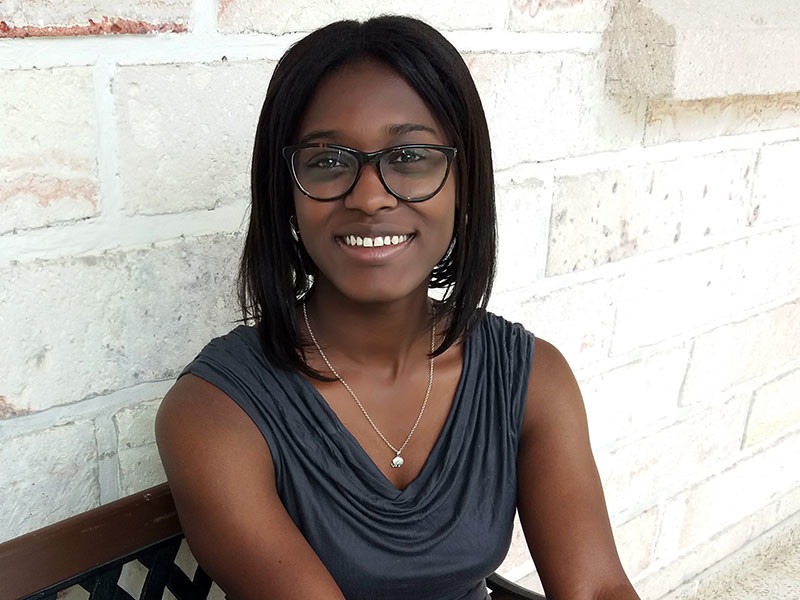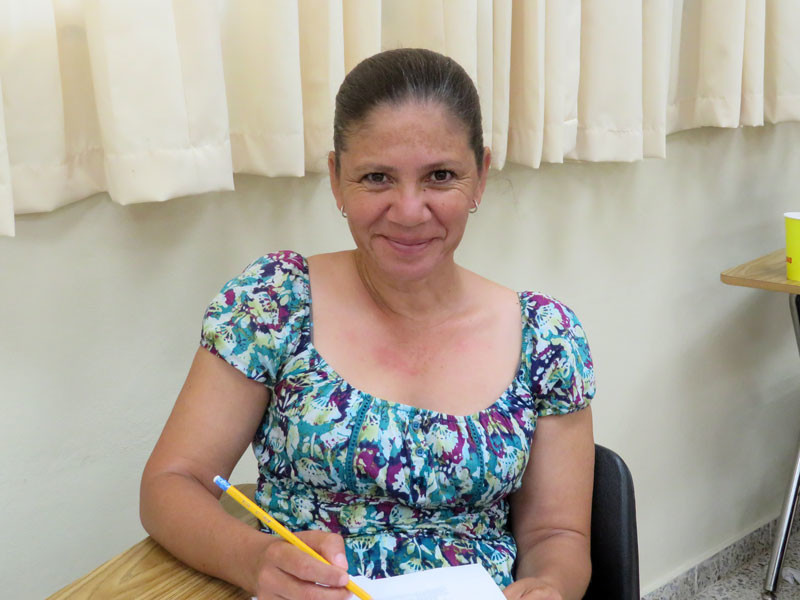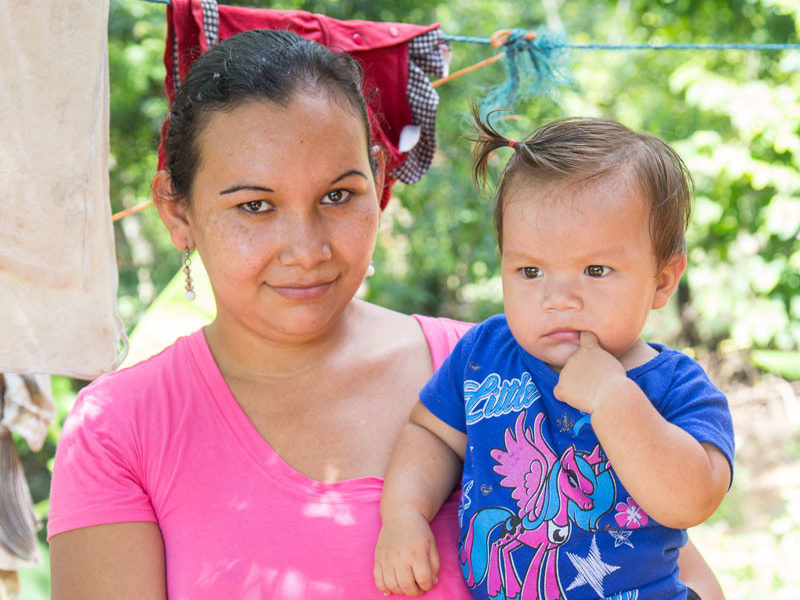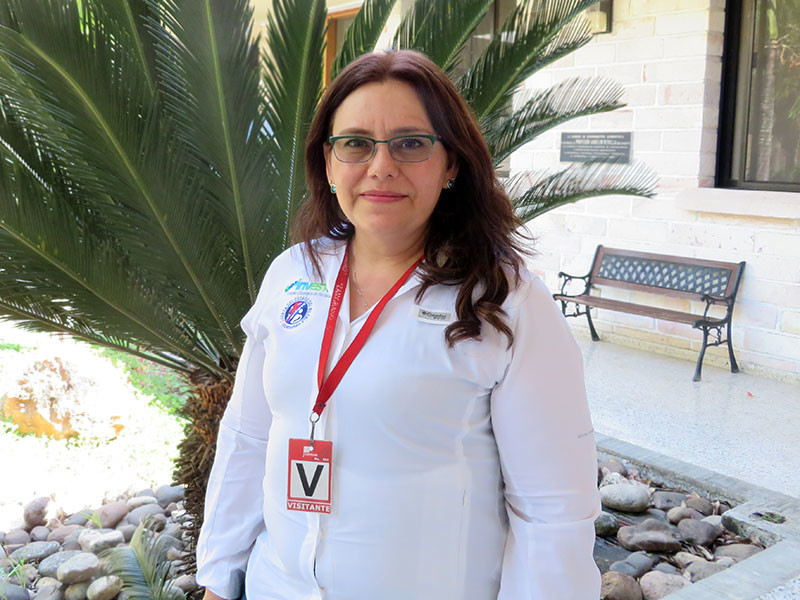Tackling malnutrition in remote Honduran communities
By Amalia San Martín and Evelyn RupertMay 18, 2018
TEGUCIGALPA — At the Pan-American Agricultural School El Zamorano, about a 45-minute drive from here, Francia Cacho is quickly taking notes as the instructor speaks at the front of the room.
Cacho is preparing for a six-month internship in the remote area of Choluteca as a nutritionist for the Dry Corridor Alliance (ACS) – PROSASUR project, which is supporting families in rural areas improve their nutrition and health.
“I have never been to Choluteca, but I’m familiar with the situation in the Dry Corridor,” she says. “I know it’s a place that is in need, because there’s a lot of food insecurity. So, it’s there that we have to measure and try to move those health indicators.”

The Dry Corridor, a region that stretches across southern Honduras and other parts of Central America, is so named for its extended periods of drought, followed by months of heavy rain. The extreme climate contributes to high levels of poverty, food and water insecurity and chronic childhood malnutrition.
Cacho and the other nutritionists are undergoing training at Zamorano, a renowned agricultural university in the region, to prepare them for the health challenges families face in the Dry Corridor. Several other project staff also came from Choluteca to attend the five-day training.
For Cacho, the training was a chance to learn something new and get up to speed on the latest data and best practices in nutrition.
“This has been an amazing experience,” she says. “It’s been an experience of a lot of learning and a lot of updates, now all that’s left is to go and implement everything that we’ve learned.”
The ACS-PROSASUR project is working in 12 municipalities to improve nutrition and hygiene and raise incomes among 6,000 poor and extreme poor households. The project will rely on a team of three nutritionists, working in partnership with local leaders and nutrition and health promoters hired by the project, to support families in adopting more diversified and healthier diets.
The project is implemented by Creative Associates International in partnership with INVEST-H. It is funded by the Global Agriculture and Food Security Program through the World Bank.
Education for healthier living
According to the World Bank, 58 percent of children age 5 and younger in the Dry Corridor suffer from chronic malnutrition, characterized as being underweight, with stunted growth, and with micronutrient malnutrition.
Part of the challenge is food insecurity and limited access to clean water; ACS-PROSASUR is working with families to allow them to grow healthier foods in small plots or community gardens. The project will also complete household improvement projects in some 2,000 households, laying concrete over dirt floors, upgrading latrines and stoves and installing rainwater collection and filtration systems.
With these initiatives, households will be better equipped to provide healthier foods to families, particularly young children and pregnant or breastfeeding women. But for the nutritionists, implementing these changes is only one part of the solution.

Nohemi Alicia Ramirez Dormes, a nutrition promoter who completed the training at Zamorano, says that the biggest challenge to progress in the communities of the Dry Corridor will be changing mindsets.
A lack of understanding about nutrition and food preparation leads families to underutilize the crops they can grow on their own land in favor of unhealthier foods, she explains.
“We have to first change attitudes in these communities, especially within mothers of young children,” she says. “If a family has hens and they gather eggs, they go to the urban area and sell the eggs in order to buy, for example, bottled soda, chips and lard for frying food. They’re not eating the healthy foods they have, so changing that mindset about what they consume will be difficult.”
Adriana Beatriz Di Iorio, an Argentinian nutrition specialist and instructor at Zamorano, says there also has to be a cultural shift in prioritizing the nutrition of mothers and young children.
“There has to be a shift in the belief that the man is the one who receives the best serving, the best meat, the best part of the chicken at a meal. He eats first at the table, and then the rest of the family can eat,” she says. “I think that to achieve a change in a population with these ingrained beliefs will take time, and I think the best direction is through education. We have to educate that mother and let her know that her husband can eat, but he should share with his children who are still growing.”
ACS-PROSASUR will work to achieve this shift in thinking with the support of nutrition promoters who will work closely with communities and individual families to put better practices into use.
The project has also begun working with community leaders and staff to regularly monitor the height and weight of young children, ensuring their growth is on track or offering counseling and advice to parents whose children are not reaching their adequate weight based on nutritional standards. Other activities include workshops about household hygiene, training on how to diversify diets based on locally grown, nutritious foods, and sharing healthy recipes, like rice with mango.

Heyli Cano, a young mother in the community of El Llano, says that through the nutrition promoters, she is already learning more about how to keep her two young children healthy.
“Sometimes it’s hard because work is very difficult here. It’s not every day that you can eat well,” she says. “They have taught us about how to eat more vegetables and other healthier foods.”
A passion for uplifting communities
Dr. Luz María Aguilar Chacón, Health and Nutrition Senior Specialist with INVEST-H, says that throughout her career in the health field, she has gotten to know families of the Dry Corridor personally and seen the effects of poverty and extreme poverty on health, and ultimately the futures of children.
She says the ACS-PROSASUR project will make a profound improvement in these communities.
“Nutrition work is very important for me because at the end of the project, we’ll be able to say that our investment had a big impact in our population,” she says. “We’re Hondurans, we love our people, and I think the really satisfying thing will be when we see these same families adopting better habits in health and nutrition.”

When she moves to Choluteca in April, nutritionist Cacho says she is looking forward to working directly with families and individuals to improve nutrition and help the next generation have a healthy start to life.
“I was working in a hospital before, and I realized that change doesn’t happen in hospitals. We’re just putting a bandage on the damage that we’ve been accumulating throughout our lives,” she says. “We have to be in the communities educating people from a very young age so that they don’t end up in the hospital. We can make a change, but it has to begin in the communities.”

